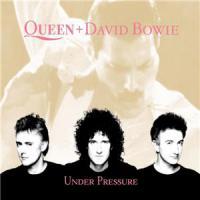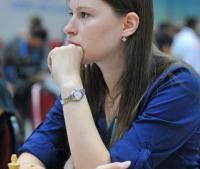
Under Pressure
While most of us prefer to be on the attacking side, quite often we end up under the opponent’s pressure. In fact, the nature of the pressure can lie in the chess realm and/or in the field of psychology. By chess pressure we mean a long-lasting active play by the opponent, when you have to stay on the defensive. It can take the form of tactical play with sacrifices, or even a positional game with maneuvers that improve the position. In both cases you will be feeling like the defender of a besieged fortress. There are quite a few top players who greatly value initiative and like to put pressure on their opponents. Kasparov used to play like that. Shirov, Topalov, Sutovsky are bright examples. Their style is very energy-consuming, but extremely dangerous for their competitors.
Psychological pressure can be either legal, or illegal. Some people are so strongly motivated to win and focused on the game that one can feel that with one's skin. The energy can even be targeted at the board, not the person, but it’s still hard to withstand it. That’s why many people were uncomfortable when playing Tal, Fischer, Kasparov. Carlsen is an excellent example of a person whose aura is so strong that some players claim he has hypnotic powers. The rule of thumb in such cases is to trust in oneself and stay calm no matter what. By the way, facing strong players with high energy levels is a good test of your suggestibility. If you are able to handle the pressure, it means that your state of mind is strong enough.
Kramnik was asked if the grimaces and other gestures Kasparov used to make quite often when seeing an unexpected or inferior move were really part of his technique of putting opponents off balance. Vladimir said that many players indeed were disappointed by such actions and, trusting Kasparov as the supreme authority in chess, concluded that they must have blundered. On the contrary, Kramnik treated such signs as small victories: “Maybe he has overlooked something, or he is upset about the strength of my move”.
When Anand elaborated on the same subject, he mentioned that the primary factor behind Kasparov’s chess strength was, after all, in his moves. If he had been a weaker player, people would have just made fun of his behavior.
Unfortunately, some chess players resort to illegal practices of putting pressure on the opponent. They can start making nasty noises, shake the table, stare at you aggressively non-stop, walk behind you and almost lean on you, etc. If you believe the opponent is misbehaving, you should consult the arbiter as opposed to making counter-moves or talking to your opponent (which is forbidden). Also, no matter how kind and intelligent you are, don’t act as a martyr who can deal with anything: displeasure will grow and negatively affect your game.
Playing against a motivated and energetic partner is a real challenge. You should ensure your nerves are under control at all costs. Sometimes being too hot-blooded makes a person go berserk and self-destruct. Therefore, you should offer your opponent a chance to go wrong and try to use his energy against himself, martial arts-style. Stay alert and watch for counter-chances. Trust in your position and ability to handle it well. Some players even like to play cat and mouse with their opponents and let them dominate for a while. A bright example that jumps to mind is the legendary Viktor “I will accept your sacrifice and beat you” Korchnoi.
If you know in advance that you will be facing an active and energetic player, you might want to reconsider your opening choice and choose something uncomfortable for him.

Photo by Martin Chrz
To complete this article, I will show you one of my worst defeats ever - a recent game played at the Snowdrops vs Oldhands match vs Rafael Vaganian. He is a very strong grandmaster, ex-champion of the USSR, and a fierce attacker. Vaganian was obviously well-prepared and blood-thirsty in this game. I got problems out of the opening and, somehow bedazzled by his authority, failed to find the right moves at critical moments. Chess normally offers a few defensive chances during the game, but one should be calm and concentrated to take advantage of them.
My opponent lured me into his home prep (during the post-mortem he mentioned that they have been studying this line with 2700+-player Sergei Movsesian). Nonetheless, his play wasn’t perfect, and theoretically I could have put up a fight. Alas, I played poorly, and missed a critical counter-shot on move 19 when I should have sacrificed my queen.
P.S. One of the important aspects of chess is creating interesting games that are appreciated by chess fans and professionals. While we all like to win and get nominated (e.g., Pogonina-Kursova, 1-0 became the only female nominee for ChessPro’s game of the month in November 2011), being a co-author is also an honor.  While I don't have a very high opinion about the quality of the game I have presented to you, it has still made it to top-10 best games played in December 2011 according to ChessPro, leaving such eminent clashes as Nakamura-Howell and Anand-Kramnik (both played in London) behind.
While I don't have a very high opinion about the quality of the game I have presented to you, it has still made it to top-10 best games played in December 2011 according to ChessPro, leaving such eminent clashes as Nakamura-Howell and Anand-Kramnik (both played in London) behind.






